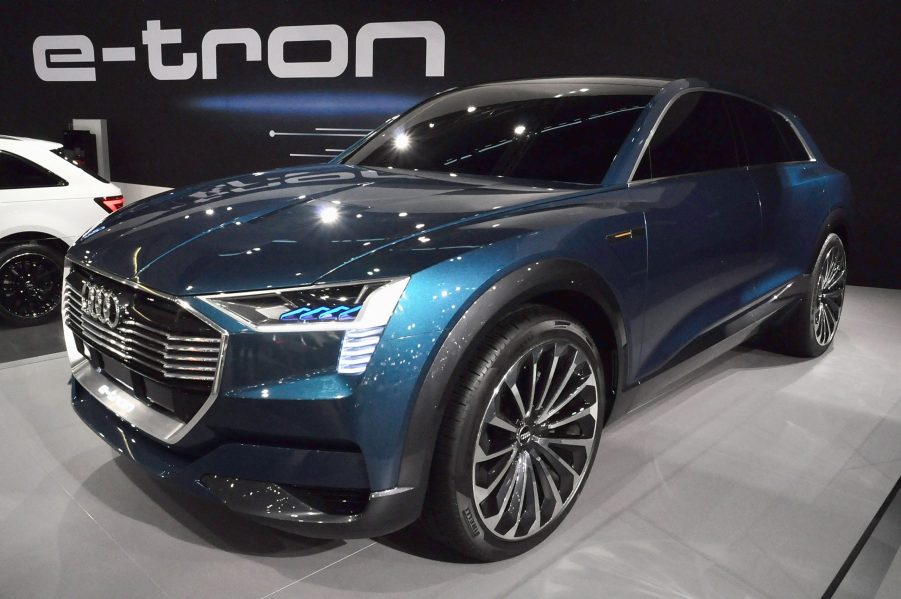
Audi Says e-tron Will Include Three Years of Free Charging
Audi is the latest automaker to offer a charging incentive to EV buyers. The Audi e-tron‘s price tag includes 3 years of free charging, but what does that actually mean? Comparing the cost of EV charging around the U.S. puts a dollar amount on Audi’s generous deal.
The Audi e-tron is a subtle and sophisticated EV

The 2022 Audi e-tron isn’t as outwardly stylized as the typical EV. Typically, these cars appeal to a tech-savvy crowd and, as such, have seen success with sci-fi-inspired designs. Despite its futuristic name, the e-tron bucks this trend. With a starting price of $66,995, this EV is a subtle and sophisticated luxury option.
Powered by front and rear motors, the e-tron offers all-wheel-drive and breathless acceleration. However, the e-tron has one of the shorter ranges among EVs, starting at 218 miles, but delivers 355 hp and 414 lb-ft of torque. The Sportback offers even more power at 402 hp and 490 lb-ft of torque.
Quick charging to 80% in just 30 minutes makes topping up an easy chore. The EPA estimates that the Audi e-tron gets 78 MPGe combined. A digital gauge cluster gives the upscale interior a touch of tech. Style is one of the many reasons this EV has soared in sales on the U.S. market.
How much is three years of charging worth?
Audi has followed suit with other EV makers in offering free charging for three years with the purchase of an e-tron. Volkswagen, Tesla, and Lucid have offered similar incentives. Hyundai offers EV buyers 250 kWh, whereas Nissan gives electric buyers $250 in charging credit and a perks program.
Assigning an estimated value to these incentives takes a little bit of math. Charging costs vary based on location and station provider. For example, a Tesla Model 3 typically costs between $15 and $18 for a 20-minute quick charge. Some EVs take twice as long to charge, costing considerably more.
On average, the cost of charging an EV at home sits around $0.04 per mile. If a driver travels 15,000 miles over the course of a year, they could expect to pay around $1,800 in charging costs over three years. Charging stations could cost significantly more.
EV ownership costs don’t stop at charging
The price of owning an EV includes more than just charging. Outside of expected insurance, there’s also the cost of maintenance. According to AAA, EV owners pay a little less for maintenance and repairs at around $949. In short, that represents a savings of $330 over gas-powered options.
EVs suffer from steep depreciation, which many include when calculating the total cost of ownership. There’s a premium on electric vehicles that means EV buyers take a bigger loss than ICE. Comparing the price of vehicles built with both EV and ICE models provides the clearest idea of how big that premium is. The Hyundai Kona EV, for example, is around $15,000 more than its ICE sibling.
There are some perks to investing in an Audi e-tron. Between the savings in fuel and maintenance costs and federal tax credits for EV buyers. Makers will likely continue to incentivize EV sales with charging packages. It’s a practical way to keep sales up while charging infrastructure improves. As electric vehicle technology is more widely adopted, public charging will become more affordable.


